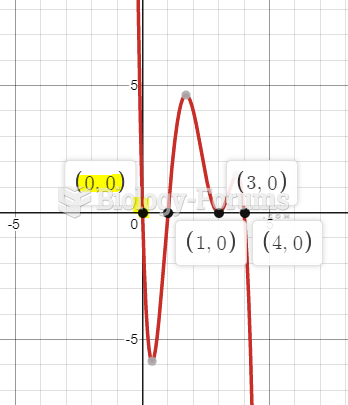This topic contains a solution. Click here to go to the answer
|
|
|
Did you know?
In Eastern Europe and Russia, interferon is administered intranasally in varied doses for the common cold and influenza. It is claimed that this treatment can lower the risk of infection by as much as 60–70%.
Did you know?
There are approximately 3 million unintended pregnancies in the United States each year.
Did you know?
Cyanide works by making the human body unable to use oxygen.
Did you know?
During pregnancy, a woman is more likely to experience bleeding gums and nosebleeds caused by hormonal changes that increase blood flow to the mouth and nose.
Did you know?
The familiar sounds of your heart are made by the heart's valves as they open and close.







